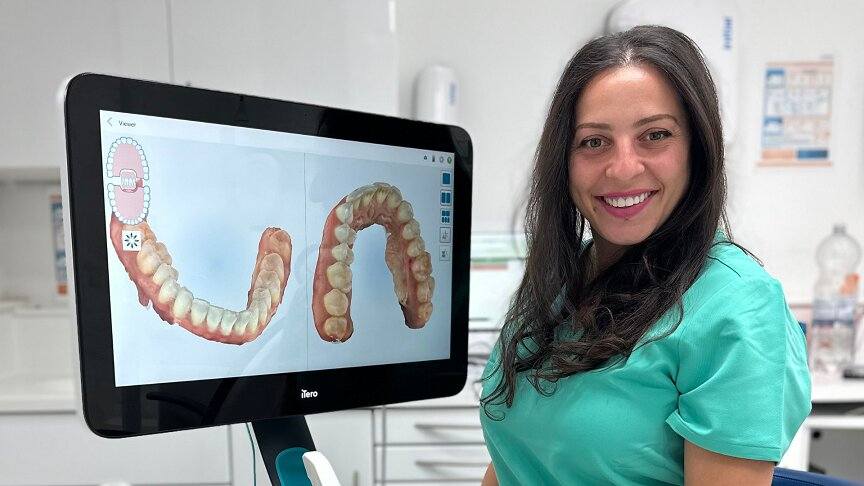Introduction
A confident smile can change how you look, how you feel, and how others perceive you. For many people, dental veneers offer a reliable and lasting way to achieve that perfect smile — transforming chipped, discoloured, or uneven teeth into a naturally beautiful set of pearly whites.
But here’s the truth: veneers aren’t for everyone. To achieve the best long-term results, it’s crucial to understand who makes an ideal candidate and what factors determine whether veneers are suitable for your smile.
This article explores in detail what makes someone a good candidate for veneers, the oral health, lifestyle and aesthetic considerations involved and what alternatives may work better if veneers aren’t suitable for you.
Key Takeaway
✔ Healthy teeth and gums are essential before veneer treatment.
✔ Ideal candidates have minor cosmetic imperfections such as stains, chips, or slight misalignment.
✔ Good oral hygiene and commitment to care are crucial for long-term success.
✔ Patients should have realistic expectations about results.
💡 Book a free veneers consultation in London at Whites Dental Waterloo (near London Bridge) or Whites Dental Marble Arch (W2) ensures veneers are right for your needs.
What Are Dental Veneers And Why People Choose Veneers?
Veneers are thin, custom-made shells – made from ceramic/porcelain or composite material – designed to cover the front surface of a patient’s teeth to improve their shape, colour and also alignment. They can be made from porcelain, Emax ceramic or composite resin, each offering a different balance of durability, translucency and cost.
People choose veneers because they:
- Instantly correct cosmetic imperfections.
- Provide a natural, bright appearance
- Are resistant to stains and wear.
- Can last over 10–15 years with proper care.
💡 In London, veneers are a popular option for professionals, public figures and anyone seeking to enhance their confidence through a brighter, more even smile. Visiting a well established dental veneers clinic for a smile makeover is essential to get the desired outcome.
What Makes Someone A Good Candidate For Veneers?

A good veneer candidate isn’t defined by appearance alone — it’s about having a healthy foundation, realistic goals and lifestyle habits that support long-term success. Let’s explore the factors that make you an ideal veneer patient.
1. You Have Healthy Teeth And Gums
Healthy teeth and gums are the foundation of successful veneer treatment.
Veneers are cosmetic enhancements — they don’t fix active dental problems.
If you have gum disease, cavities, or weakened enamel, those issues must be addressed first. Placing veneers over unhealthy teeth can lead to further complications, discomfort, or even veneer failure.
At Whites Dental, your dentist will perform a thorough examination to check for:
- Gum inflammation or periodontal disease;
- Untreated decay or infections.
- Bone support and enamel thickness.
Only when your mouth is stable and healthy can veneers be considered a long-term cosmetic solution.
2. You Have Adequate Tooth Enamel
For veneers to bond effectively, your natural teeth need enough healthy enamel.
Typically, a thin layer (0.3–0.7 mm) of enamel is removed before bonding. If enamel is too thin or already eroded, veneers may not adhere properly or could appear bulky.
If you have thin enamel, your dentist may recommend alternatives such as Lumineers or no-prep veneers, which are designed to fit over your natural teeth with little to no enamel reduction.
3. You’re Concerned About Cosmetic Imperfections
Veneers are perfect for addressing mild to moderate aesthetic flaws such as:
- Persistent discolouration that teeth whitening can’t fix.
- Minor chips, cracks, or uneven edges
- Slight gaps between teeth (diastema).
- Mild crowding or asymmetry;
- Teeth that are too small or worn down.
If you’re looking to create uniformity in your smile without undergoing lengthy orthodontic treatment, veneers can be an elegant solution.
4. You Have Straight Or Slightly Misaligned Teeth
Veneers can mask minor alignment issues, but they’re not suitable for correcting severe crowding or bite problems. If your teeth overlap significantly or your bite is uneven, orthodontic treatment such as Invisalign may be needed first to achieve the best aesthetic and functional results.
At Whites Dental, your dentist will assess whether veneers alone can deliver the smile you want — or whether a staged approach combining orthodontics and veneers will be more effective.
5. You Don’t Grind Or Clench Your Teeth
Bruxism (tooth grinding or clenching) puts significant pressure on veneers and natural teeth.
Over time, this can lead to cracks, chips or detachment of the veneers.
If you grind your teeth, you may still be a candidate for veneers — but your dentist will likely recommend wearing a custom night guard to protect your teeth while you sleep.
6. You Have Realistic Expectations
While veneers can dramatically improve your smile, it’s important to have realistic expectations.
They don’t make your teeth indestructible, nor do they stop natural wear and tear over time.
Good candidates understand that veneers are an investment in their confidence and appearance — and that maintaining them requires proper oral hygiene, professional check-ups, and care.
Oral Health Conditions That May Prevent Veneers

Before starting veneer treatment, certain oral conditions must be identified and treated:
1. Gum Disease (Periodontitis)
Inflamed or infected gums can lead to poor bonding and long-term veneer failure. Treating gum disease first ensures veneers adhere properly and remain stable.
2. Tooth Decay Or Cavities
Active decay needs to be repaired before veneers are placed. In some cases, a dental crown may be a better solution if too much tooth structure has been lost.
3. Severe Enamel Erosion
Without enough enamel, bonding becomes weak. Alternatives like Lumineers or composite bonding may be safer.
4. Bruxism
Untreated grinding can severely shorten veneer lifespan. Your dentist may suggest a bite guard or muscle relaxant therapy before proceeding.
5. Poor Oral Hygiene
If plaque buildup or bleeding gums are a regular issue, veneers should be delayed until oral hygiene improves.
Lifestyle Factors That Affect Veneer Suitability
Veneers are a long-term commitment and lifestyle habits play a huge role in their success.
1. Smoking
While porcelain itself doesn’t stain, smoking can cause discolouration of the bonding material and surrounding gums. If you smoke, reducing or quitting before veneer treatment will ensure your new smile stays bright and healthy.
2. Diet And Staining Habits
Excessive coffee, tea or red wine can cause staining around veneers over time. Moderating these habits helps maintain their brightness.
3. Oral Hygiene Routine
Patients who brush twice daily, floss and attend regular hygiene appointments enjoy significantly longer veneer lifespans.
4. Commitment To Maintenance
Veneers aren’t a “fit and forget” solution. They require consistent care, routine checkups, and sometimes small touch-ups to stay perfect.
Psychological And Aesthetic Readiness
Veneers are not just a cosmetic procedure — they’re a psychological investment. The most satisfied patients are those who:
- Have thought deeply about their reasons for wanting veneers.
- Understand the process and permanence of the procedure.
- Want to improve confidence, not chase unrealistic perfection.
💡 At Whites Dental, your dentist will discuss your goals, motivations and expectations to ensure veneers align with your personal and professional lifestyle.
Age And Veneers – Is There A Limit?
There’s no strict age limit for veneers, but suitability depends on dental maturity and condition.
- Young patients (under 18) are usually advised to wait until teeth and gums have fully develope
- Adults in their 20s–50s are the most common veneer candidates.
- Older adults can still have veneers, provided their oral health is stable and gums are healthy.
💡 Your dentist will tailor the approach based on age-related factors such as enamel wear, gum recession, and bite stability.
Alternatives For Those Who Aren’t Suitable
If veneers aren’t the right option for you, there are several other treatments that can still enhance your smile:
- Teeth Whitening – For discolouration without enamel damage.
- Composite Bonding – Ideal for small chips or shape corrections
- Orthodontic Aligners (Invisalign) – To correct alignment before veneers.
- Crowns – For severely damaged or decayed teeth.
- No-Prep Veneers – For patients with thin enamel or minimal defects;
💡 Whites Dental provides a full suite of cosmetic options to design a personalised plan that fits your needs and lifestyle.
Why A Professional Consultation Is Essential
The only reliable way to determine candidacy for veneers is through a professional consultation with an experienced veneers dentist.
At Whites Dental, your veneer journey starts with a comprehensive smile assessment including:
- Oral health examination and digital X-rays.
- Enamel and gum evaluation.
- Bite alignment and smile symmetry assessment.
- Digital mock-up or smile preview.
💡 This consultation ensures your treatment plan is medically sound, cosmetically tailored, and safely achievable.
Why Choose Whites Dental For Veneers In London
At Whites Dental, we combine advanced cosmetic expertise with state-of-the-art technology to deliver veneers that are both beautiful and functional. Our experienced cosmetic dentists have helped hundreds of patients achieve stunning smile transformations with minimal discomfort and maximum precision.
We offer consultations at two convenient Central London locations:
Whites Dental Waterloo (near London Bridge)
📍 172 Blackfriars Rd, London SE1 8ER
📞 0208 616 0590
Whites Dental Marble Arch (W2)
📍 52B Kendal St, St George’s Fields, London W2 2BP
📞 020 3576 2325
💡 Each clinic provides a calm, modern environment where you’ll receive honest, personalised guidance on whether veneers are the right choice for you.
